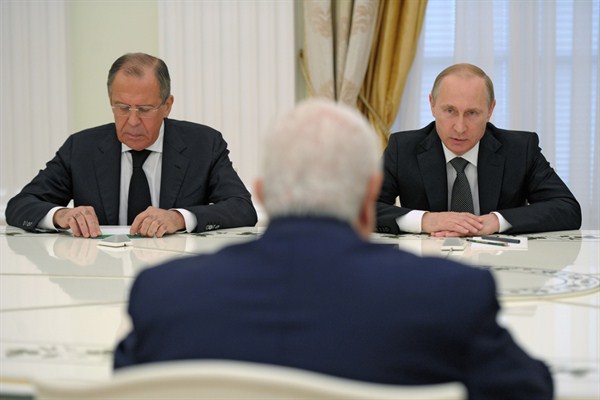After World War II, the United States reluctantly assumed global power. But most Americans considered this temporary, assuming the United States would disengage once Europe was back on its feet and the world’s war-torn regions were on the way to recovery. But by the time the Soviet Union finally collapsed and the Cold War ended 45 years later, Americans had become so accustomed to global power that there was little serious pressure for disengagement. Global power had become comforting and normal.
Yet this, too, proved temporary. Now, weary after decades of containing the Soviet Union and 14 years of fighting transnational Islamic extremism, with a public deeply concerned about massive government deficits, the United States is downsizing its role in the world. This is contributing to a major and historic reconfiguration of the global security system.
One aspect of this might be called “old faces in new places,” as Russia and China move to expand their influence. Russia poses the most immediate challenge. Even though its aggregate national power is significantly less than China’s, it is more aggressively hostile toward the status quo and more willing to challenge it. Moscow’s main goal seems to be reconstituting the influence it had during the Cold War. This includes attempts to create pliant clients in the now independent nations that were part of the former Soviet Union or, if possible, seize them outright. Russia’s assertiveness has taken a new turn in recent weeks as Moscow has expanded its military support for the Syrian regime of Bashar al-Assad. Syria was long a Soviet client, so this is more a return to the past than an entry into a new region. But it does indicate the extent of Russian ambitions, at least when it comes to preserving the few remaining customers for its arms sales.

